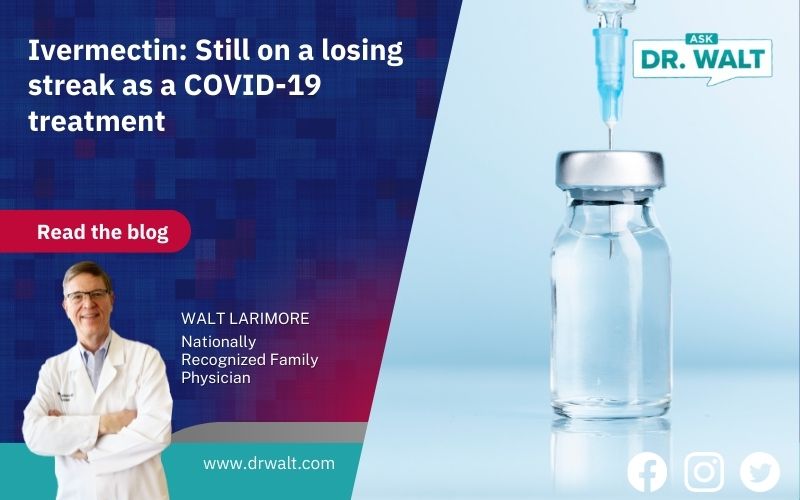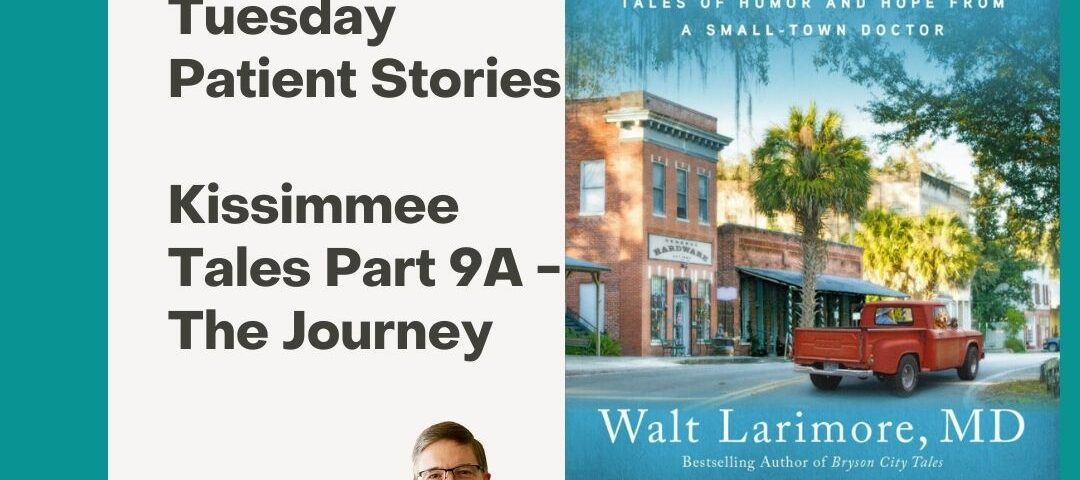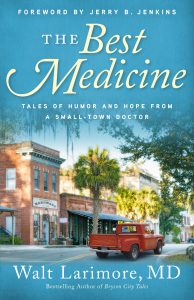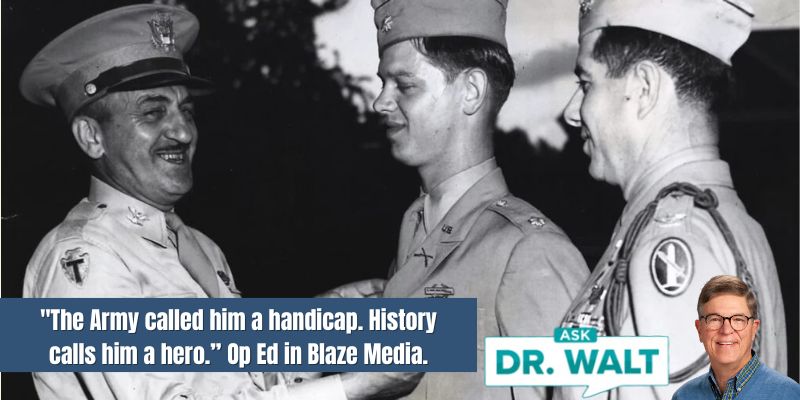
Ultra-processed foods increase obesity and health complications
November 14, 2022
Ivermectin: Still on a losing streak as a COVID-19 treatment
November 16, 2022For the next few months, I’m excerpting chapters from the first of two books about my early years in family medicine in Kissimmee, Florida – The Best Medicine: Tales of Humor and Hope from a Small-Town Doctor. I hope you, your family, and your friends will follow along and enjoy this trip back into the past with me and my family.
CHAPTER 9A – THE JOURNEY
While the nurses were getting the new family into the recovery room, I went to the doctors’ station to dictate a delivery note and write orders for mother and child.
A voice from behind said, “Got a minute?” It was Sandi. She was quiet a moment. “I’m familiar with midwife techniques, but we don’t see them used very often here. We have one female Ob-Gyn who uses some of the newer birthing methods, but most of the male OBs ridicule her for it.”
“You don’t think I will get in trouble doing things this way?”
She smiled. “Oh, I’m not saying that. I think our other young nurses and our OB nurse supervisor will be supportive. And I, for one, am happy to see it. It’s overdue. But some of our older doctors may not be so sympathetic or understanding. I’d recommend you go slow.”
“I appreciate the heads-up and support. And the advice.”
Sandi turned and left. As I finished my paperwork, several memories flooded my soul. I remembered my junior year of medical school at LSU in New Orleans. They had farmed me out to a branch of Charity Hospital in the small town of Lafayette, Louisiana, on the border of the Atchafalaya Swamp. After my three classmates and I had finished orientation with the head OB nurse, she asked me to stay behind. Once we were alone, she said, “Your mother called me and told me she’s an OB nurse in Baton Rouge.”
“When I was younger,” I explained, “my mom worked the three to eleven shift, Friday through Sunday, and when she got home, she would wake me to share about the babies she had delivered. For years I thought OB nurses delivered babies, not doctors. She’d tell me stories about the ‘good’ ones and the ‘bad’ ones—admiring the skilled physicians and having disdain for the others, which she said were few and far between.”
“Your mom told me how very proud she is that one of her boys became a doctor, and I suspect she very much wants him not to be a bad one. She told me I was to call her and report if your handwriting is not legible, if you don’t clean up after yourself, if you don’t treat every patient with the utmost compassion and each and every nurse and staff person with the greatest respect, and if you don’t say ‘Yes, ma’am,’ and ‘No, ma’am,’ to my staff and me. She told me to ask you, ‘Do you understand me?’”
I nodded. “Yes, ma’am.”
“One last thing.”
There was no telling what was coming next.
“She requested that I put you on call the first night and that I have you sleep on a patient gurney between deliveries.”
I must have looked confused because I was. Why in the world would Mom want that? I thought.
“She wanted you to know, in some small way, what your patients were experiencing.”
After that rotation, I was never the same. The nurses with whom doctors work are invariably competent and compassionate people. They spend far more time with our patients than we doctors do. And, I’ve learned that, in general, female nurses have far more intuition than most male healthcare professionals. They can make a doctor’s professional life very successful or very uncomfortable.
****
When I arrived home, Barb and the kids were asleep. I was still revved up from the excitement of my first delivery, so I sat on our swing on the back porch. As I rocked to the calming symphony provided by scores of crickets, katydids, and frogs, I reflected on attending the transition of a baby from unborn to born. It was an exhilarating journey that was an honor to take with a young family—an experience that never exhausted me. Oh, spending hours with a family during labor can tax and tire one, but like our birth patients, we forget the stress, work, and exhaustion it takes to birth a child the instant they release their forceful and hearty first shriek, exclaiming to all, “Look out world! I’m here! I’ve arrived!”
TO BE CONTINUED
[i] Horatio Gates Spafford, “It Is Well with My Soul,” 1873, public domain, Wikipedia, https://en.wikipedia.org/wiki/It_Is_Well_with_My_Soul.
This excerpt from The Best Medicine: Tales of Humor and Hope from a Small-Town Doctor is provided with the permission of the publisher Baker/Revell. You can learn more about the book or purchase a copy here.
© Copyright WLL, INC. 2022.





